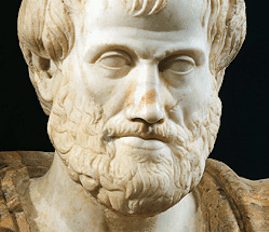Warning: Trying to access array offset on value of type bool in /home/best2g05/public_html/wp-content/themes/Divi/epanel/custom_functions.php on line 629
On Friendship
 Aristotle laid out the philosophical foundation of friendship as the art of holding up a mirror to each other’s souls. Two millennia later, Emerson contemplated its two pillars of truth and tenderness. Another century later, C.S. Lewis wrote: “Friendship is unnecessary, like philosophy, like art, like the universe itself… It has no survival value; rather it is one of those things which give value to survival.”
Aristotle laid out the philosophical foundation of friendship as the art of holding up a mirror to each other’s souls. Two millennia later, Emerson contemplated its two pillars of truth and tenderness. Another century later, C.S. Lewis wrote: “Friendship is unnecessary, like philosophy, like art, like the universe itself… It has no survival value; rather it is one of those things which give value to survival.”
In the Celtic tradition, there is a beautiful understanding of love and friendship. One of the fascinating ideas here is the idea of soul-love; the old Gaelic term for this is anam cara. Anam is the Gaelic word for soul and cara is the word for friend. So anam cara in the Celtic world was the “soul friend.” In the early Celtic church, a person who acted as a teacher, companion, or spiritual guide was called an anam cara. It originally referred to someone to whom you confessed, revealing the hidden intimacies of your life. With the anam cara you could share your inner-most self, your mind and your heart. This friendship was an act of recognition and belonging. When you had an anam cara, your friendship cut across all convention, morality, and category. You were joined in an ancient and eternal way with the “friend of your soul.” The Celtic understanding did not set limitations of space or time on the soul. There is no cage for the soul. The soul is a divine light that flows into you and into your Other. This art of belonging awakened and fostered a deep and special companionship. John O’Donohue
Anam Cara: A Book of Celtic Wisdom offers an exploration of the secret universe we all carry inside us, the connections we forge with the worlds of our friends and loved ones, and the products of our worlds reflected in the things we create outside of ourselves. Anam Cara, Gaelic for “soul friend,” is an ancient journey down a nearly forgotten path of wisdom into what it means to be human. Drawing on this age-old perspective, John O’Donohue helps us to see ourselves as the Celts did: we’re more than just flesh, blood, and bone; we comprise individual worlds. The comprehension of the sublime architecture of the worlds we are born with will engender a new appreciation for the outside world and the way we contribute to its evolution.
Anam Cara , the Soul Friend – A short video clip perspective
Meditation: HayoStahl – Anam Cara / Soul Friend
“Celtic spiritualism. Living Anam Cara is exciting, fulfilling and a bit tense at times…. for our culture does not promote the true experience of kinship, even among mixed gender relationships, which Anam Cara brings forth. I’ve defied social conventions before and will probably do so until the last breath escapes my lungs. Choosing to live Anam Cara is not a decision I regret. Knowing I’m supported by others in that quest is very affirming.” – Gary Carlile
***
“I would like to thank our soul friend Gary Carlile for bringing forth the idea of Anam Cara, soul friend. I see and feel the presence of many soul friends within our circle. Whether present and spiritually connected on a Monday night, or spiritually connected from afar, our energy bonds us at a sacred depth, and for this, I am grateful.” – Clay Boykin
“A friend … awakens your life in order to free the wild possibilities within you.”
Holding Sacred Space For a Friend (video clip)






 Daily Om – Releasing Guilt: Permission to Forgive Ourselves
Daily Om – Releasing Guilt: Permission to Forgive Ourselves